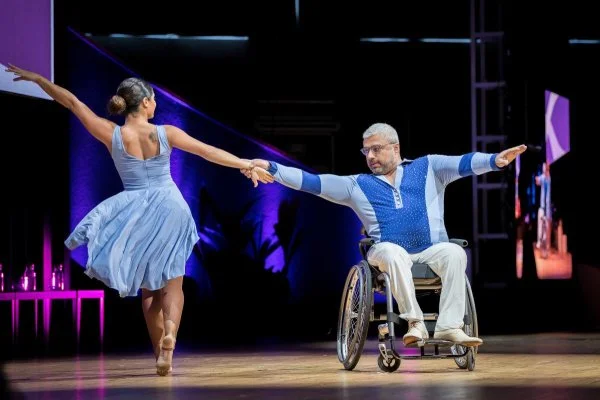- Français
- |
- Booklist
- |
- Week of Prayer
- |
- Links
- Areopagus - a forum for dialogue
- Academic journals
- Acronyms
- Bible tools
- Bibliographies
- Booksellers and publishers
- Churches
- Canadian church headquarters
- Directory of Saskatchewan churches
- Retreat centres
- Saskatchewan church and non-profit agencies
- Ecumenism.net Denominational links
- Anabaptist & Mennonite
- Anglican
- Baptist
- Evangelical
- Independent episcopal
- Lutheran
- Methodist, Wesleyan, and Holiness
- Miscellaneous
- Mormon
- Orthodox (Eastern & Oriental)
- Para-church ministries
- Pentecostal / charismatic
- Presbyterian & Reformed
- Quaker (Society of Friends)
- Roman & Eastern Catholic
- United and uniting
- Documents of Ecumenical Interest
- Ecumenical agencies
- Ecumenical Booklist
- Ecumenical Dialogues
- Glossary
- Human rights
- Inter-religious links
- Justice & peace
- Lectionaries
- Religious news services
- Resource pages
- Search Ecumenism.Net
- |
- Documents
- Ancient & Medieval texts
- Ecumenical Dialogues
- Interreligious
- Anabaptist & Mennonite
- Anglican
- Evangelical
- Lutheran
- Orthodox
- Reformed & Presbyterian
- Roman & Eastern Catholic
- United & Uniting
- Miscellaneous churches
- Canadian Council of Churches (CCC)
- Conference of European Churches (CEC)
- Interchurch Families International Network (IFIN)
- National Council of Churches in Australia (NCCA)
- Lausanne Committee for World Evangelism (LCWE)
- World Council of Churches (WCC)
- Other ecumenical documents
Church traditions
Documents from ecumenical agencies
- |
- Dialogues
- Adventist-Reformed
- African Instituted Churches-Reformed
- Anglican-Lutheran
- Anglican-Orthodox
- Anglican-Reformed
- Anglican-Roman Catholic
- Anglican-United/Uniting
- Baptist-Reformed
- Disciples of Christ-Reformed
- Disciples of Christ-Roman Catholic
- Evangelical-Roman Catholic
- Lutheran-Mennonite
- Lutheran-Mennonite-Roman Catholic
- Lutheran-Reformed
- Lutheran-Roman Catholic
- Mennonite-Reformed
- Mennonite-Roman Catholic
- Methodist-Reformed
- Methodist-Roman Catholic
- Oriental Orthodox-Reformed
- Orthodox-Reformed
- Orthodox-Roman Catholic
- Pentecostal-Reformed
- Prague Consultations
- REC-WARC Consultations
- Roman Catholic-Lutheran-Reformed
- Roman Catholic-Reformed
- Roman Catholic-United Church of Canada
- |
- Quick links
- Canadian Centre for Ecumenism
- Canadian Council of Churches
- Ecumenical Shared Ministries
- Ecumenism in Canada
- Interchurch Families International Network
- International Anglican-Roman Catholic Commission for Unity and Mission
- Kairos: Canadian Ecumenical Justice Initiatives
- North American Academy of Ecumenists
- Prairie Centre for Ecumenism
- Réseau œcuménique justice et paix
- Week of Prayer for Christian Unity
- Women's Interchurch Council of Canada
- World Council of Churches
- |
- Archives
- |
- About us
Break barriers, demand change, be different: clarion calls to the WCC 11th Assembly
— Sept. 6, 20226 sept. 2022Witnessing a spectacular display of movement and grace through para-dance, the World Council of Churches (WCC) 11th Assembly was challenged to boldly proclaim the truth about injustices, show a commitment to transformation, and be agents of reconciliation by recognizing complicity.
Rev. Dr Henriette Hutabarat-Lebang, delegate from the Toraja Church, was part of 5 September’s thematic plenary focusing on the intersection of human dignity and justice through the lens of gender, disability, race, and youth.
“Many of our churches are both complicit and complainant,” said Adele Halliday, assembly guest from the United Church of Canada and moderator for the WCC Advisory Group on Overcoming Racism, Discrimination, and Xenophobia.
Halliday challenged churches to “authentically and faithfully” wrestle with the impact of intergenerational trauma from residential schools, work with communities who are seeking healing from post-traumatic slave syndrome, confront how churches have benefited from imperial profits from enslavement, and work towards human dignity for all.
“The challenge is to continue fighting for justice,” said Rev. Dora Arce Valentin, delegate and general secretary of the Reformed-Presbyterian Church in Cuba, “to bravely burst into those comfort places… and demand healing for victims.”
“We the people, church leaders and fellow humans—can and are able to change the structures,” said Maria Mountraki, delegate from the Orthodox Church of Finland and member of the WCC Commission on Young People in the Ecumenical Movement. This is our work and we need to break the barriers, she noted, “it is not for someone else, it is for us to do.”
Samson Waweru Njoki, advisor to the assembly from the Greek Orthodox Patriarchate of Alexandria and All Africa in Kenya, called on churches and all Christians to address the structures that neglect and discriminate against people with disabilities. “We can adapt our hearts,” he said.
“We need more practical ways of dealing with the context of disability,” continued Njoki, who lifted up the importance of ensuring human dignity. “I invite you to think about some of the things we can do as a church, ecumenical movement, assembly, to make the WCC more inclusive.”
The plenary concluded with asking whether transformation and reconciliation are truly possible.
“I believe it is possible,” said Halliday, noting that true reconciliation takes time and demands change. “For there to be true transformation and reconciliation, we as churches cannot just talk about being different, we need to be different.’
- #WCC assembly – Thematic Plenary 4 video
- Photos of the WCC 11th Assembly in Karlsruhe, Germany
- WCC 11th Assembly in Karlsruhe, Germany

 Permanent link: ecumenism.net/?p=12447
Permanent link: ecumenism.net/?p=12447
Categories: Conferences, WCC News • In this article: WCC, WCC Assembly

 Lien permanente : ecumenism.net/?p=12447
Lien permanente : ecumenism.net/?p=12447
Catégorie : Conferences, WCC News • Dans cet article : WCC, WCC Assembly



